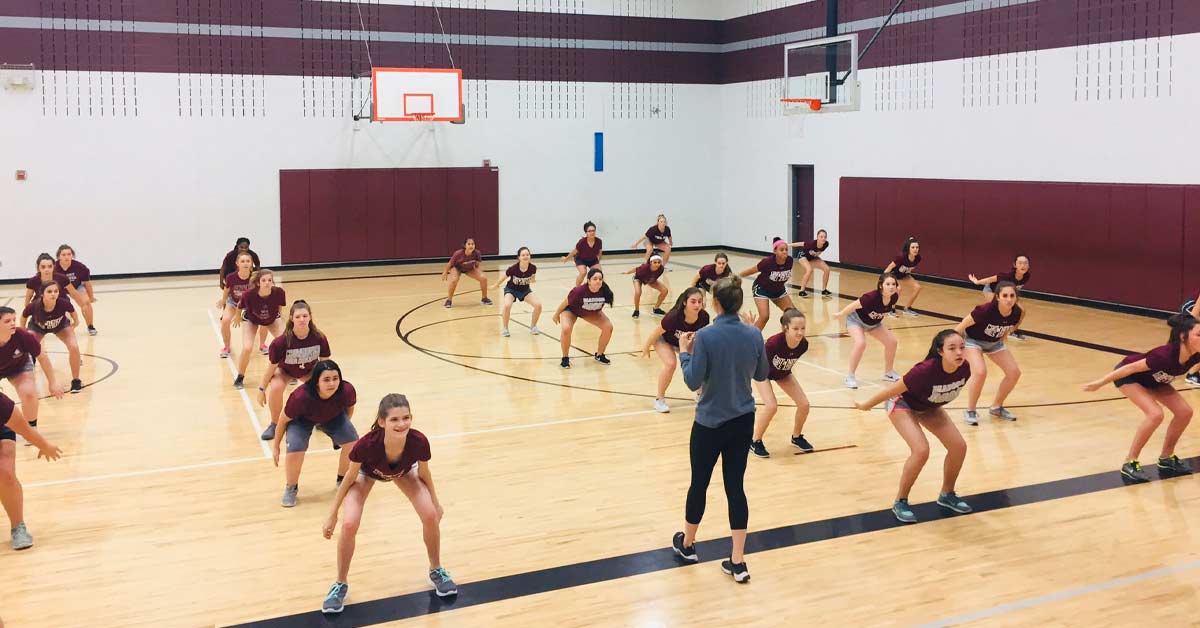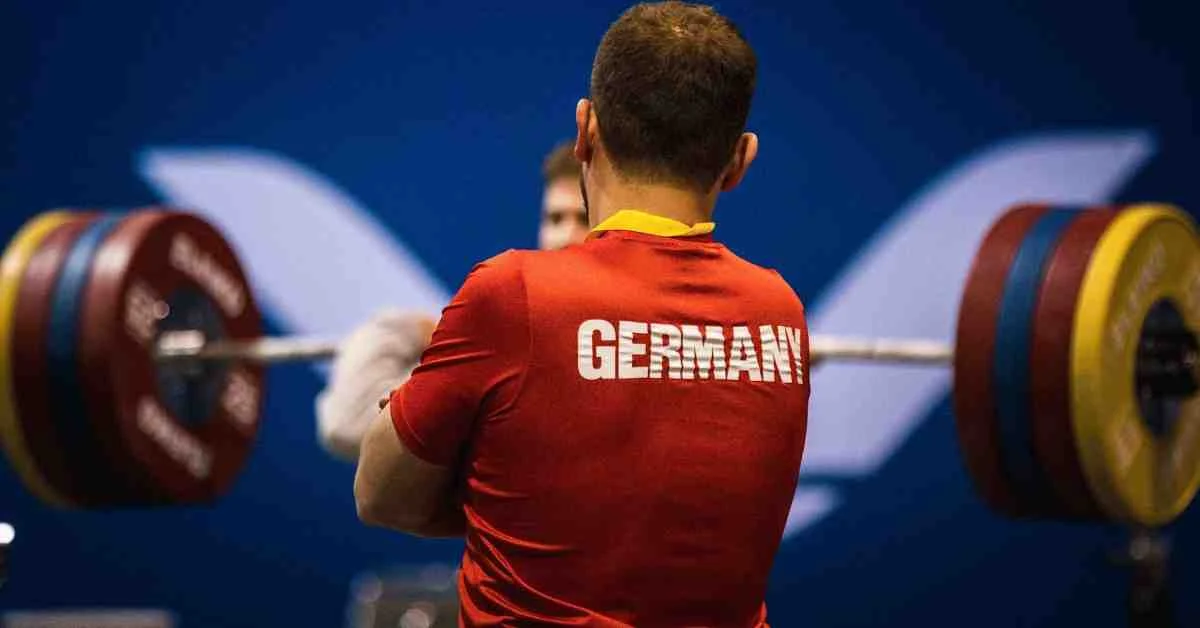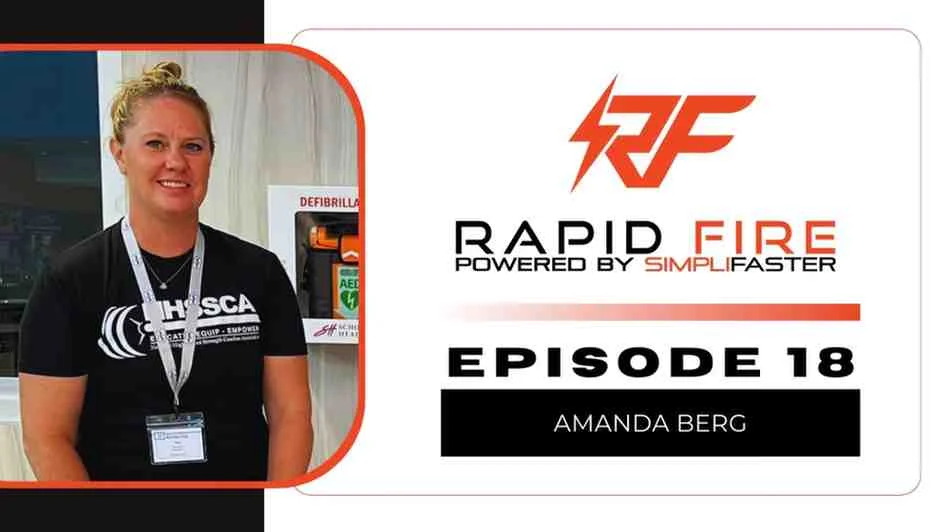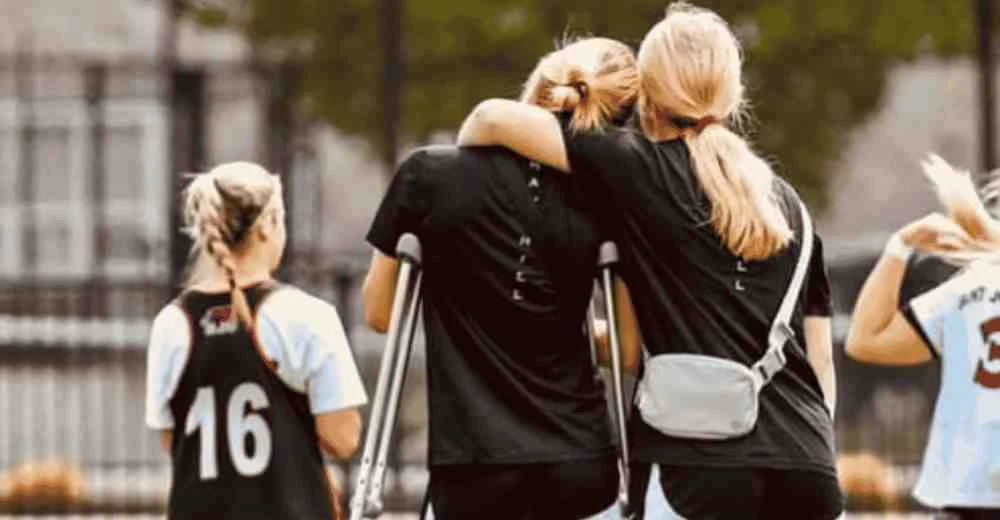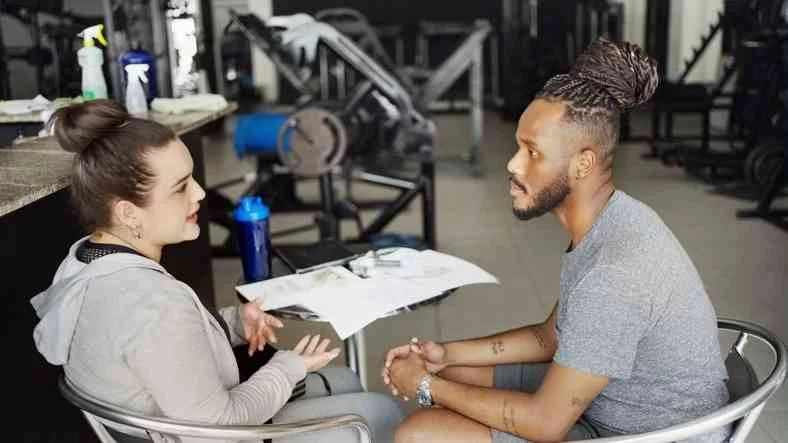When I started this article, it wasn’t specific to the high school setting. But then I realized most of my career has been specialized in high school—a fact I take great pride in—and there are unique insights only those of us in this field can share. What I have to say may help prepare or deter you from pursuing the high school avenue. Either way, my hope is to help.
Coaching high school isn’t for everybody, and strength and conditioning isn’t for everybody. Before you fill yourself with unrealistic dreams or saturate your transcript with kinesiology credits, please read on.
Coaching high school isn’t for everybody, and S&C isn’t for everybody. Before you fill yourself with unrealistic dreams or saturate your transcript with kinesiology credits, please read on. Share on XFor some background and context on my coaching path, I completed two collegiate internships, one while in graduate school and the other post. Between and during the two, I worked as a personal trainer, physical therapy technician, and lifeguard. I moved across the country from Alabama to California and in a span of five years only had one full-time job. It took five years post graduate school to get the position I have today.
This may resonate with you, or it may not, but I hope these insights provide some realistic guidance to help you navigate this turbulent sea we call strength and conditioning.
- Know YOUR why.
- Get certified to teach.
- Bet on yourself.
- Train anyone you can.
- Know how to freestyle.
- Be prepared to be a staff of one.
- Make the most of less than ideal.
- Teach and do other duties as assigned.
- Prepare for parents and principals.
- Reap the rewards.
1. Know YOUR Why
On a surface level, strength and conditioning sounds fun. And it is. Wearing athleisure every day, working in a weight room, experiencing success on multiple levels, building relationships—there are numerous reasons it’s a fun and fulfilling career. However, if you don’t approach this field with honest intentions and a servant attitude, the journey will be fraught with more than just the standard challenges.
There’s no part or room for selfishness in coaching. Coaching is a service, and coaching is not about the coach. If you’re reading this and your reasons for wanting to be a strength coach stem from anything other than wanting to help people, you need to reconsider your path right now.
If your reasons for wanting to be a strength coach stem from anything other than wanting to help people, you need to reconsider your path right now, says @rachelkh2. Share on XNobody can decide your why for you. This is something you must know, and it’s the something that will drive you to get up every morning. And yes, it will be early. Your why is your intention, which is everything.
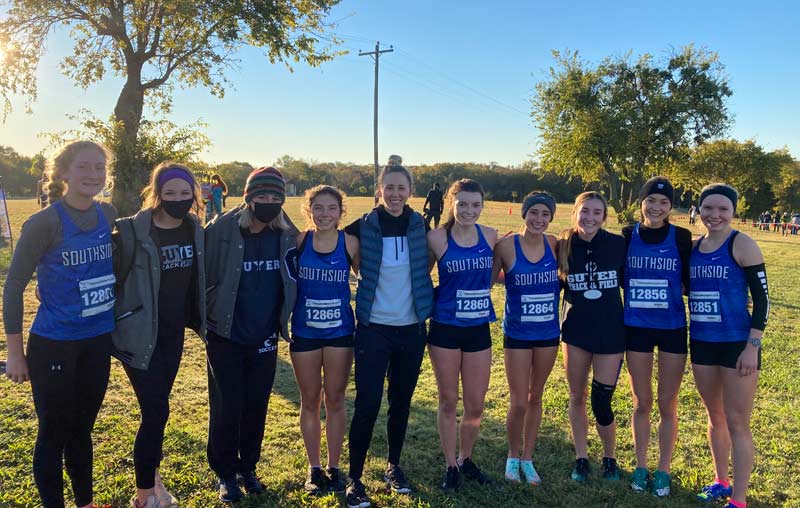
The field of strength and conditioning is saturated with applicants, and before you spend thousands on a degree that may not benefit you—or before you quit your day job—please scrutinize your why.
2. Get Certified to Teach
At the very least, find out if certification is required in your state. In Texas, where I’m located, certification is required. I don’t teach any classes, but I’m thankful I became certified before applying because I met all the minimum requirements from the start.
Don’t let something like this be the reason another candidate is hired over you. You could be the best candidate on paper, but if someone else is already certified, admin doesn’t have to wait on a contingency.
3. Bet on Yourself
You must rely on yourself for everything. As I’ve worked and reflected on my career, I’ve realized the most valuable lessons were the ones I learned on my own. They weren’t taught in a lecture or discussed during an internship. Nobody sat me down and gave me a lesson on any single one of them.
This not to say my internships and learning experiences weren’t crucial in my development— they were. But at some point, I decided to trust that I could be my own teacher, and I had to chart my own course. Nobody will do that for you. You can put the entire alphabet after your name and do some internships at championship schools, but in the end, you have to take responsibility for the outcomes you strive to achieve.
You can put the entire alphabet after your name and do some internships at championship schools, but in the end, you must take responsibility for the outcomes you strive to achieve. Share on XBetting on yourself requires confidence, and there are a lot of ways to build it. For me, confidence was developed by having an open mind and being open to learning. I love textbooks and learning about science. But my real education came from hours and hours of reading articles and books written by actual strength coaches.
My advice to you is to read about all the training methods you can and go down rabbit holes on topics that interest you. Take notes, record your thoughts, and have discussions to build practical knowledge. Form your own thoughts and reasons about what you think and why. This is where true confidence comes from, and confidence (not arrogance) is critical if you’re going to bet on yourself.
4. Train Anyone You Can
This absolutely means populations who aren’t athletes. I trained one athlete the entire time I worked as a personal trainer. The rest were a diverse pool ranging from a middle-aged male looking to gain muscle to a nurse who worked nights and wanted to explore strength training as a potential sleep aid. I trained people who needed to lose weight, people who just wanted to feel better, and people who had specific goals, like benching 225.
Was it exactly what I wanted to be doing? No. But it was practice, and it was a step in the direction I wanted to go. If you want to be a strength coach and are not currently training people, this is probably the point I’d emphasize the most.
Working with a diverse population provides a diverse set of problems and an opportunity to create a diverse set of solutions. If you want to specialize in training athletic populations, it’s imperative you develop your latitude as a coach by building your abilities. In other words, fill your toolbox with options.
The strength and conditioning community preaches ad nauseum the importance of the multisport athlete, but the same concept gets little attention when it comes to our career field. Find a way to train regular people and broaden your ability to coach, communicate, and problem-solve.
5. Know How to Freestyle
Freestyling is my less-boring term for critical thinking. By this, I mean be prepared to write workouts that may seem unorthodox or don’t follow a popular periodization scheme. Be able to take what you know (see point 4) and piece it together to make it work for your specific situation. Trying to implement someone else’s program or scheme in your house is like trying to use a roadmap of Texas in Virginia.
A qualified strength coach is one who is secure enough to implement what’s best for the given situation. Freestyling calls for an understanding of different methods and exercises or sometimes no method at all. It’s simply the ability to get the job done in a way that won’t hurt or hinder the athlete.
There are a lot of reasons you need to be comfortable with this concept. Resources, equipment, and space are three, which I’ll touch on later. But the impact of club sports is probably the biggest reason. It does depend on where you’re located, but in certain states, like Texas, club sports will (or should) strongly influence how you train your kids. As an example, from January to May, a handful of my volleyball players do not squat with me because they check that box at their club workouts.
When an athlete tells me Tuesday morning that she did back squats 5×8 the previous night, it would be harmful to subject her to more of the same. It doesn’t matter what I want to do or what would be ideal. Ideal only exists in textbooks, so don’t expect to find it in athletics at any level.
Be secure enough to stray from the conventional, and freestyle to meet the needs of your specific situation. The talking heads of strength and conditioning aren’t the ones making a daily impact on your athletes. Do right by your athletes; that’s all that matters.
6. Be Prepared to Be a Staff of One
You’re going to wear multiple hats as a high school strength coach. I don’t know of an area more concentrated with high school strength coaches than the Dallas Fort Worth Metroplex, and we’re all a staff of one. What I’m about to say may seem insulting or silly, but there are a few things to consider when it’s just you:
- Equipment maintenance will be your responsibility, and you should understand how to use basic tools like screwdrivers and Allen wrenches. You should also be knowledgeable and familiar with different equipment brands. Understanding equipment and how to assemble or disassemble it is part of the job. The flow and function of your room will depend on it.
- Cleaning the weight room will fall directly on your shoulders. There isn’t a staff to divvy up chores. Sweeping, vacuuming, wiping down, and organizing will be part of your weekly tasks. Of course, you can employ the kids, but if you’ve only got 30 minutes twice a week to train, cleaning probably isn’t the best use of anyone’s time.
- Continuing education will only happen on your initiative. This one is hard because you don’t have a staff of other coaches sitting next to you, pushing you to get better. There are no staff development meetings, and you will most pay for continuing education out of your own pocket.
Owning this role can be challenging, especially if you’re coming from the collegiate setting. Being your own boss and doing things exactly how you want to do them is great but holding yourself accountable and answering “why?” to yourself are critical components for success.
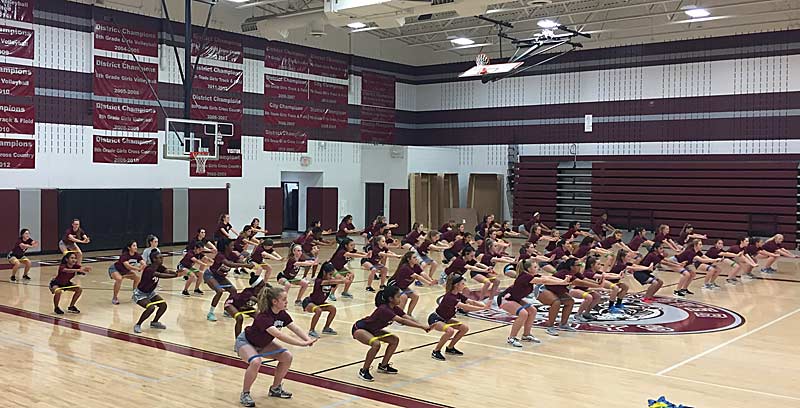
7. Make the Most out of Less Than Ideal
There are numerous ways to make my point with this, but suffice it to say, nothing will be ideal. As I said previously, ideal only exists in textbooks. You’ll have sport coaches who doubt you and club sports to contend with, you may have no budget, you may have a class with regular kids and athletes, and the list goes on.
I’ve been nothing but fortunate in the seven years I’ve held this role. I started with a room that was barely 1,000 square feet with eight Power Lift racks. For some that sounds like a dream, but there were still limitations and less-than-ideal scenarios. Training an entire program—from freshmen who could barely hold a barbell to seniors who had advanced abilities—was challenging. Freshmen often did the entirety of their lift in the adjacent hallway. Scheduling was tight, as there was only room for one team or program at a time, and equipment quantities didn’t meet our needs.
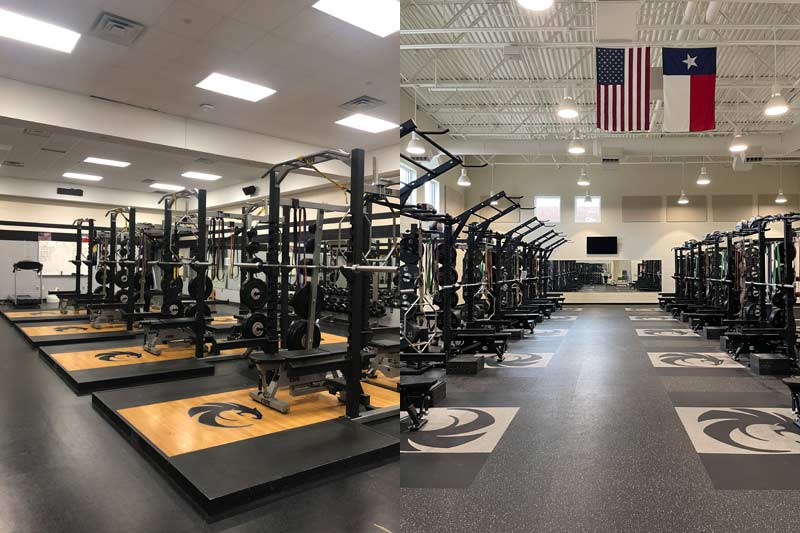
But I more than got the job done utilizing plates and body weight or structuring lifts in unique ways. I cut my teeth as a coach and further deepened my confidence and abilities through challenges and less-than-ideal situations. I rose to the challenges and succeeded, just as we hope for our athletes.
Solving problems and challenges as a high school strength coach will require a humble attitude, open mind, and extensive communication skills. Be prepared for that, and through the chaos, you’ll emerge a competent, highly skilled coach.
Solving problems and challenges as a high school strength coach will require a humble attitude, open mind, and extensive communication skills. Be prepared for that, says @rachelkh2. Share on X8. Teach and Do Other Duties as Assigned
As I discussed in point 2, some high school positions require a teaching certification…because you may be required to teach. There are some positions that do not, but these are often the exception to the rule. If you don’t teach, you can expect to have other duties assigned:
- Lunch duty
- Hallway monitoring
- Proctoring an exam for state-mandated standardized testing
The role of strength and conditioning coach is a new position in high schools, and many on staff may not even know you exist, much less know what you do. In their minds, you just show up in sweats and write workouts on a board. If you’re assigned other tasks and do a poor job of them, you taint the entire profession. School districts can remove positions just as quickly as they create them. So don’t be that person. Strive to do the best job at every job you have within the school.
High schools are small communities within themselves, and it’s important for others in the school to know you and be able to speak of your character. Even if you don’t have “other duties as assigned,” it would behoove you to volunteer to help in other ways.
9. Prepare for Parents and Principals
You want a good rapport with your principal(s), for numerous reasons. Among other things, the principals are responsible for the master schedule, the teaching responsibilities, and the general budget of the school. It’s extremely important you have a relationship with them, especially if you rely on them for resources or need something changed. Build a relationship and get them vested in what you do; invite them to watch the kids train and help them learn the value you bring to their school.
You also want a good rapport with parents because parents are powerful. Whether you’re a jerk of a coach or an amazing coach, word travels home every day. Parents will learn who you are through their children’s experiences. They want what’s best for their kids, and they want to understand what it is you do with their kids. They’ll approach you at the grocery store or after games or reach out via email, and you’ll need to be able to communicate with them effectively.
10. Reap the Rewards
Each sector and level of strength and conditioning is unique and rewarding in its own way. For me, currently, there’s nothing better than where I am: the pride I feel hearing, “Hey, Coach Hayes” in the hallway or looking around the room and witnessing a once awkward group of ninth graders work though a session with precision and efficiency.
Although volatile, the adolescent years are the most formative, and being able to be part of their journey is powerful, says @rachelkh2. Share on XAlthough volatile, the adolescent years are the most formative, and being able to be part of their journey is powerful. This is a time to impact them for life, whether it be through character development or teaching them a lifelong skill. They’re also still kids, and with that comes an endless supply of laughs and learning. I can promise you there are things that happen in a high school weight room that you’ll never see or experience anywhere else (see image below).
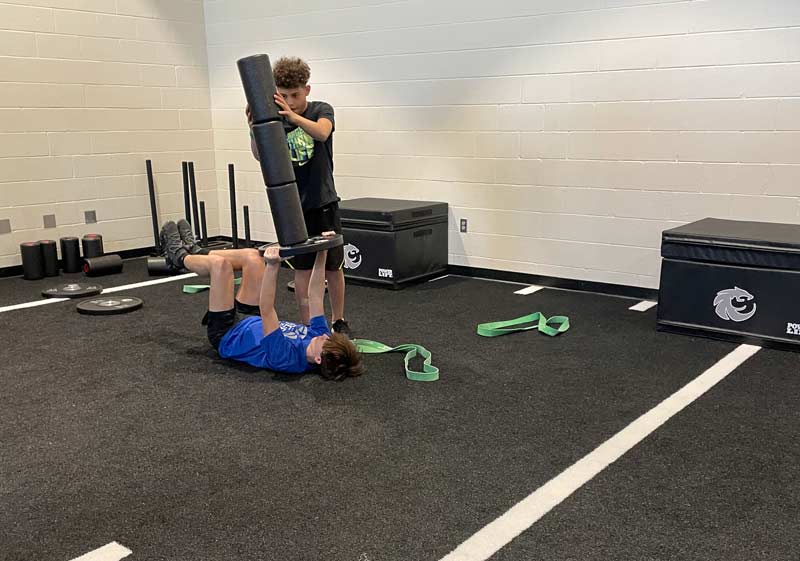
Some Closing Thoughts
The fact that you can aspire and decide to be a high school strength coach is a positive sign the field is growing. However, I’m sure that could be debated along with today’s “hot take” you scroll past on your timeline. When I began 13 years ago, opportunities were much more limited, and full-time high school positions were virtually unheard of. As a collective field we still have work to do, but the realist in me can acknowledge progress and a flicker of light ahead.
If these reflections created more questions or uncertainty, please reach out. The high school strength community is tightknit across the country and if someone can’t help you sufficiently, they’ll connect you with a coach who can.
If you’re given the opportunity to hold the title of high school strength coach, please respect and earn that title every day. By doing so, you help pave the way for these roles to become standard in every high school. We’re still pioneering this faction of strength and conditioning, and it’s important our intentions and actions reflect our long-term goals.

